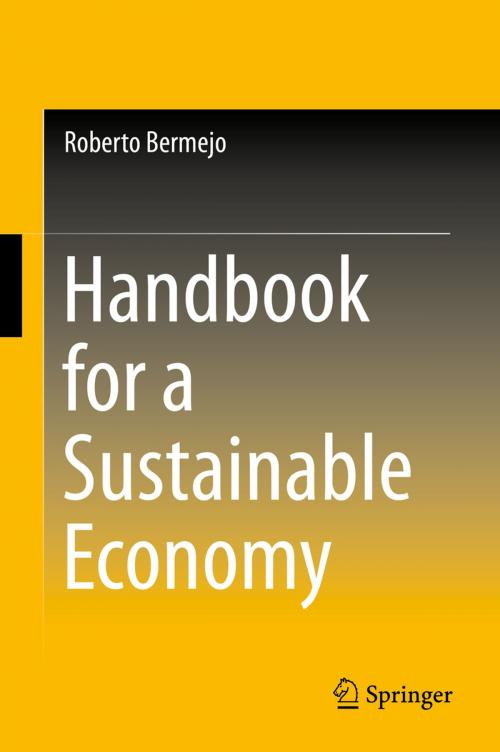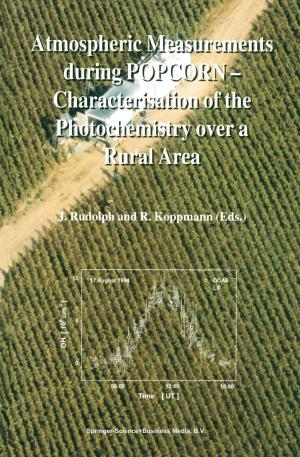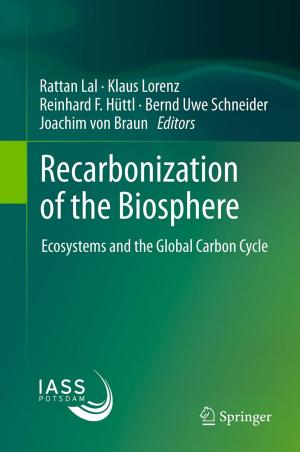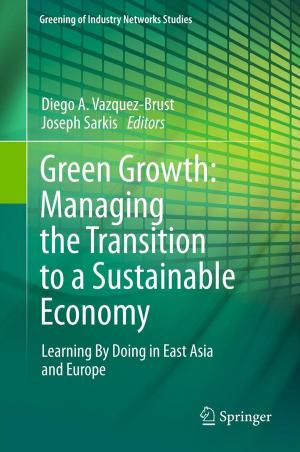Handbook for a Sustainable Economy
Nonfiction, Science & Nature, Science, Biological Sciences, Environmental Science, Business & Finance, Economics| Author: | Roberto Bermejo | ISBN: | 9789401789813 |
| Publisher: | Springer Netherlands | Publication: | July 15, 2014 |
| Imprint: | Springer | Language: | English |
| Author: | Roberto Bermejo |
| ISBN: | 9789401789813 |
| Publisher: | Springer Netherlands |
| Publication: | July 15, 2014 |
| Imprint: | Springer |
| Language: | English |
Since the 1992 World Scientists’ Warning to Humanity, the looming prospect of Earth’s changing climate has inspired a broad movement dedicated to a sustainable future. In this Handbook, the author explains the elements of a sustainable economy, the development of which must be undertaken if we are to retain our civilization.
The first section offers a critical analysis of orthodox economical thinking, and the tools used by the conventional economy to solve the “environmental problem.” The author examines the theory and tools of Environmental Economics addressing the commodification of nature, and offers analysis of the theoretical and practical contradictions which arise from attempts to combine environmental protection and free trade.
Part II discusses the principles and tools needed to build a sustainable economy, including the concept of biomimicry as a guiding principle of sustainability, a brief description of the adaptive cycle of ecosystems and explains the concept of transformability and the factors that determine it. Discussion includes a broad evaluation of the capacity for transformation of National Sustainable Development Strategies and an analysis of the essential requirements of ecology-based tax reform. Also included is a critical vision of the dominant paradigm of science and technology.
The third section explores sustainable production and consumption, discussing energy, transport, the circular economy of materials and sustainable consumption. Included are a detailed analysis of factors that determine the limits of fossil fuels, a description of the peak oil structural effect and its sectoral impacts, an overview of a sustainable electric system and a review of biofuels, electricity and hydrogen. The author concludes that only hydrogen associated to fuel offers a sustainable alternative to oil. Discussion includes a view of the structural causes of the current high-level consumption model through the lens of motivation, provision and access systems and a detailed description of policies that must be adopted as part of a sustainable consumption strategy.
The final chapter undertakes the task of analyzing the capability of our societies to transform themselves to reach sustainability. The author broadly evaluates each factor, as a prior step to carrying out an overall evaluation and demonstrates that in order to accomplish a comprehensive analysis, a multidisciplinary group is necessary.
Since the 1992 World Scientists’ Warning to Humanity, the looming prospect of Earth’s changing climate has inspired a broad movement dedicated to a sustainable future. In this Handbook, the author explains the elements of a sustainable economy, the development of which must be undertaken if we are to retain our civilization.
The first section offers a critical analysis of orthodox economical thinking, and the tools used by the conventional economy to solve the “environmental problem.” The author examines the theory and tools of Environmental Economics addressing the commodification of nature, and offers analysis of the theoretical and practical contradictions which arise from attempts to combine environmental protection and free trade.
Part II discusses the principles and tools needed to build a sustainable economy, including the concept of biomimicry as a guiding principle of sustainability, a brief description of the adaptive cycle of ecosystems and explains the concept of transformability and the factors that determine it. Discussion includes a broad evaluation of the capacity for transformation of National Sustainable Development Strategies and an analysis of the essential requirements of ecology-based tax reform. Also included is a critical vision of the dominant paradigm of science and technology.
The third section explores sustainable production and consumption, discussing energy, transport, the circular economy of materials and sustainable consumption. Included are a detailed analysis of factors that determine the limits of fossil fuels, a description of the peak oil structural effect and its sectoral impacts, an overview of a sustainable electric system and a review of biofuels, electricity and hydrogen. The author concludes that only hydrogen associated to fuel offers a sustainable alternative to oil. Discussion includes a view of the structural causes of the current high-level consumption model through the lens of motivation, provision and access systems and a detailed description of policies that must be adopted as part of a sustainable consumption strategy.
The final chapter undertakes the task of analyzing the capability of our societies to transform themselves to reach sustainability. The author broadly evaluates each factor, as a prior step to carrying out an overall evaluation and demonstrates that in order to accomplish a comprehensive analysis, a multidisciplinary group is necessary.















